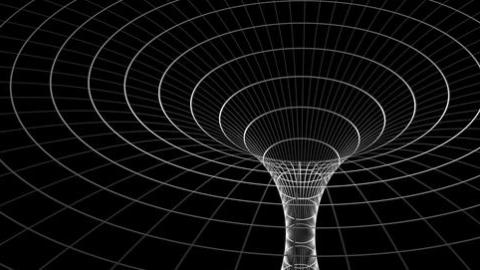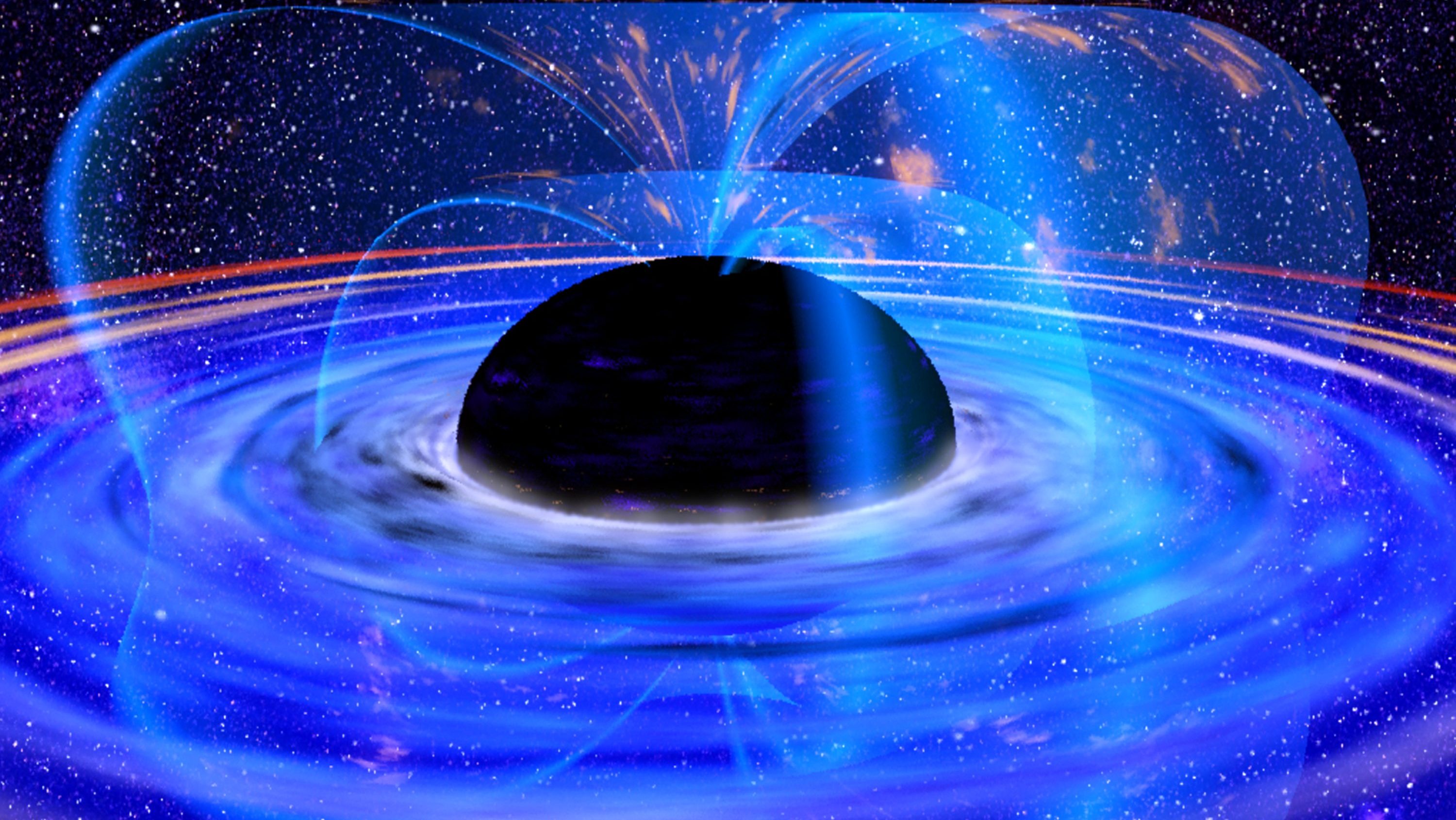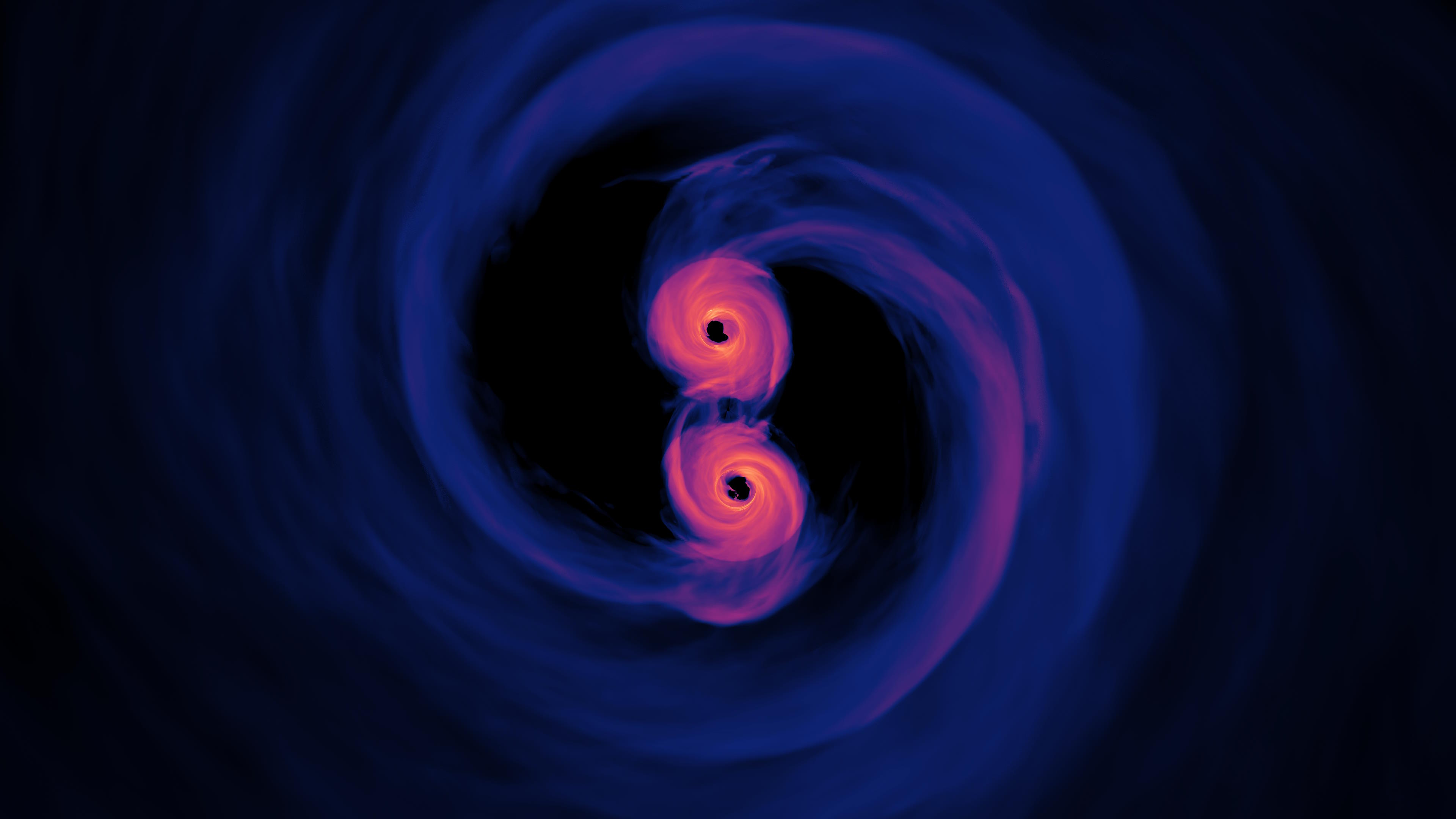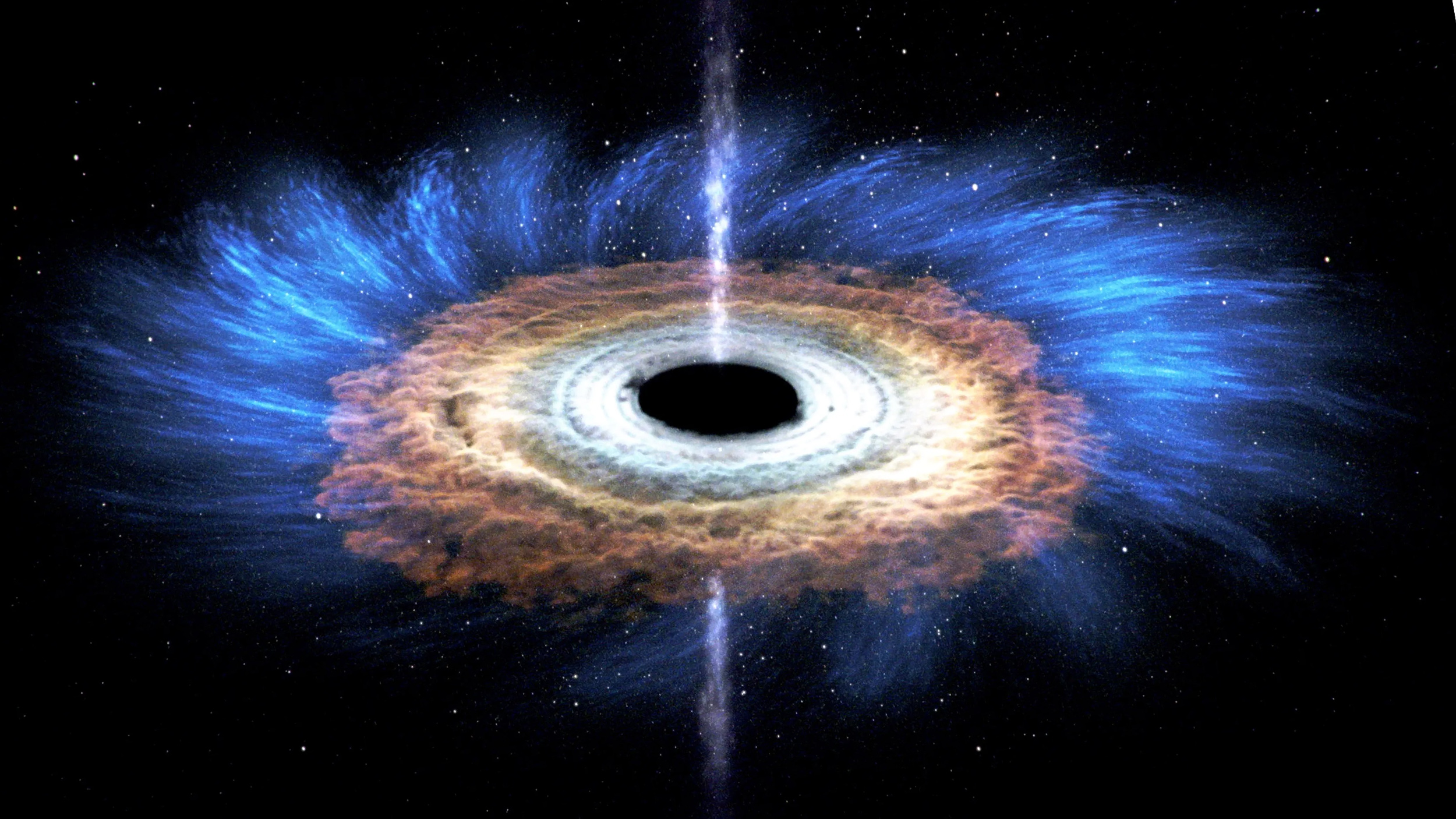A Quantum Theory of Black Holes Could Solve Physics’ Mysteries

What’s the Latest Development?
In an attempt to reconcile Einstein’s theory of gravity with quantum mechanics, two European physicists are attempting to explain black holes using the language of quantum physics. Because particles are the building blocks of quantum theory, Georgi Dvali of CERN near Geneva, Switzerland, and Cesar Gomez of the Autonomous University of Madrid, Spain, chose gravitons, the hypothetical particles that are thought to carry the force of gravity. “Considering black holes as an overpacked bucket of gravitons allowed the pair to solve several mysteries, including why black holes radiate energy and get hotter as they evaporate.”
What’s the Big Idea?
If the pair’s attempt to explain black holes using quantum language is successful, black holes could act as a kind of Rosetta Stone, translating between the two competing theories of gravity and perhaps leading to a theory of quantum gravity. “In this picture, we write down gravitational properties of gravitons in the quantum mechanical language,” Dvali says. “We are building a quantum version of Einstein’s theory.” Critics of the project, likeGerard ‘t Hooft of Utrecht University in the Netherlands, argue that black holes are more subtle than an extremely dense formation of gravitons.
Photo credit: Shutterstock.com





